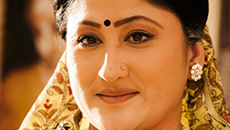The team: Raj Khaira: Global Director (founder); Simi Gill: Campaign Director, Ontario; Baljot Grewal: Campaign Manager, GTA; Kirpa Grewal: Campaign Manager, Ottawa; Navi Brar: Campaign Director, Alberta and British Columbia; Harbir Singh: National Director for Canada; Karen Dhaliwal: Campaign Director, Saskatchewan
Pink Ladoo campaign created by Raj Khaira targets a pressing issue in the South Asian community – gender discrimination. The issue extends to other communities, cultures and individuals from all around the world at various degrees, but in some families in the South Asian community, discrimination starts right at birth.
While the birth of a boy is marked by distribution of sweets, a girl is welcomed with dismay and is seen as a burden on the family due to factors such as dowry. Khaira explains, “Our campaign is based around gender equality and encouraging families to celebrate the birth of girls because we are trying to get the South Asian community to take ownership for the problems that South Asian women face (such as domestic abuse and dowry violence) and to realise that the reason women face these issues in the South Asian community is because women are seen as having less value than men.”
Khaira advocates strongly against the bias through her campaign which presently operates in the United Kingdom and Canada. But what exposed Khaira to a subject so strong? A personal experience Khaira describes saying, “It’s something that I started thinking about when my brother was born because I noticed the difference in the way people reacted to his birth versus that of my sister. I was around 12 years old at the time and I vividly recall having a conversation with my mom about how we should start a trend to help mark the birth of a girl.”

Sometime later, Khaira was introduced to Nach Balliye, a Brampton-based group empowering women and using pink ladoos to fund their various activities. Khaira says this was a “light bulb moment” for her and decided to use the sweet as a symbol of protest against gender-biased treatment. “It has to be a bit of a ‘no brainer.’ The Pink Ladoo fit perfectly with all those objectives; you see it and because it’s a ladoo you know that it relates to a celebration and because it is Pink, you immediately associate it with a girl. That’s how we arrived at Pink Ladoo.”
The campaign came into focus in October 2015, when the organization distributed boxes of pink ladoos to parents of all babies – male and female – born in Birmingham Women’s Hospital (UK). This was the advent of a powerful campaign that went beyond gender discrimination at birth. It consequentially deals with other social issues such as domestic and dowry violence.
Q&A with Raj Khaira

What has the response to your campaign been like?
The response to the campaign has been overwhelmingly positive. Initially we were flooded with stories from women who were keen to share their experience, particularly their negative experiences surrounding the birth of their daughters or the pressure to have a son. After that the response evolved into something more nuanced where people started sending us pictures and stories of the ways in which they celebrated their daughters.
During the Lohri period we had countless emails and messages about families who had thrown Lohri parties for their girls. This wasn’t something we suggested but we were delighted to see it because it meant that people were getting our wider message which is that girls and boys should be treated and celebrated equally.



